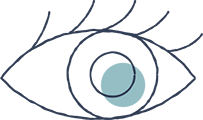Opioids are natural or synthetic chemicals that relieve pain by binding to receptors in your brain or body to reduce the intensity of pain signals reaching the brain. They’re sometimes prescribed by doctors to treat pain.
For some people, prescription opioids can greatly increase quality of life, especially for those suffering from chronic pain. However, opioids can also post significant risks. When a person uses opioids, the brain physiologically changes, adapting to the presence of the drug. The longer opioid use continues, this becomes the new normal for the brain.
What are prescription opioids?
If you are prescribed opioids, follow the three steps below to stay safe.

LOCK
Keep medication out of sight and in a safe and secure place.
- Consider storing medications in a lock box or hide them in a discrete location in your home so they are not easy for others to find.
- Keep a low profile. Your medicines are your business. There's no reason to tell people about the medicines you take.

MONITOR
Keep track of medication and take only as directed.
- Count how many pills you have at any given time to check for missing pills.
- Never share your medications. If a family member or friend is injured, instead of "sharing" a pain reliever, make sure he or she sees a health care professional.

TAKE BACK
Drop off unused medication at local Take Back locations. To find a location near you, visit ND Take Back Program Locations.
- If a take-back program is not available, prescription drugs can be placed in an opaque container mixed with coffee grounds or kitty litter and thrown in the garbage.
